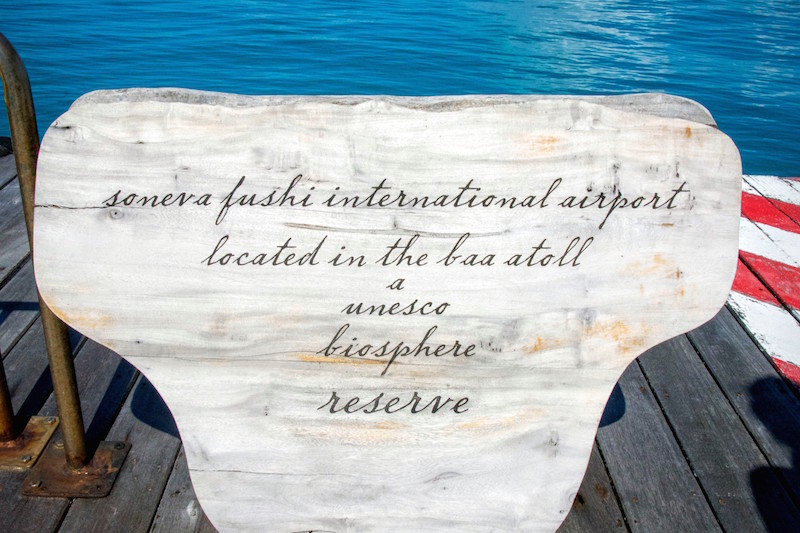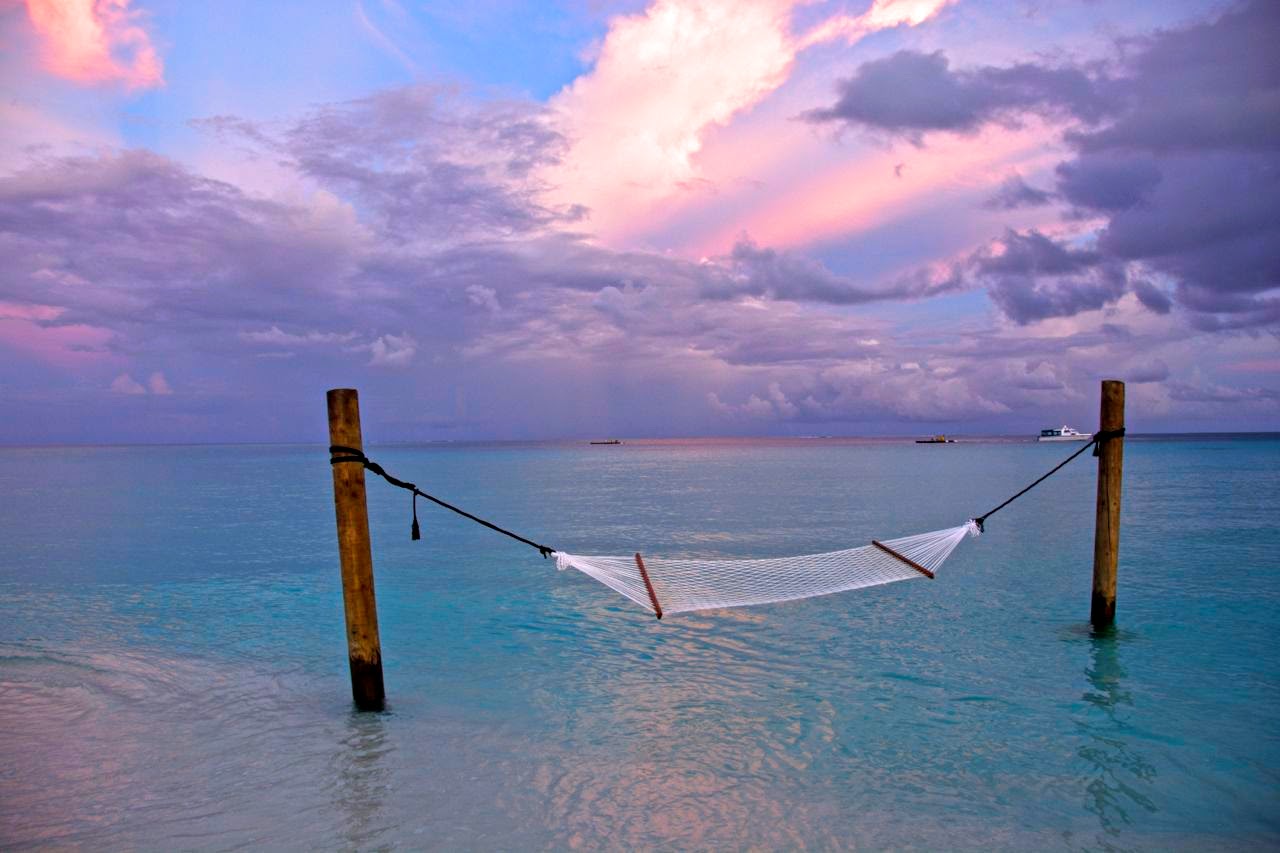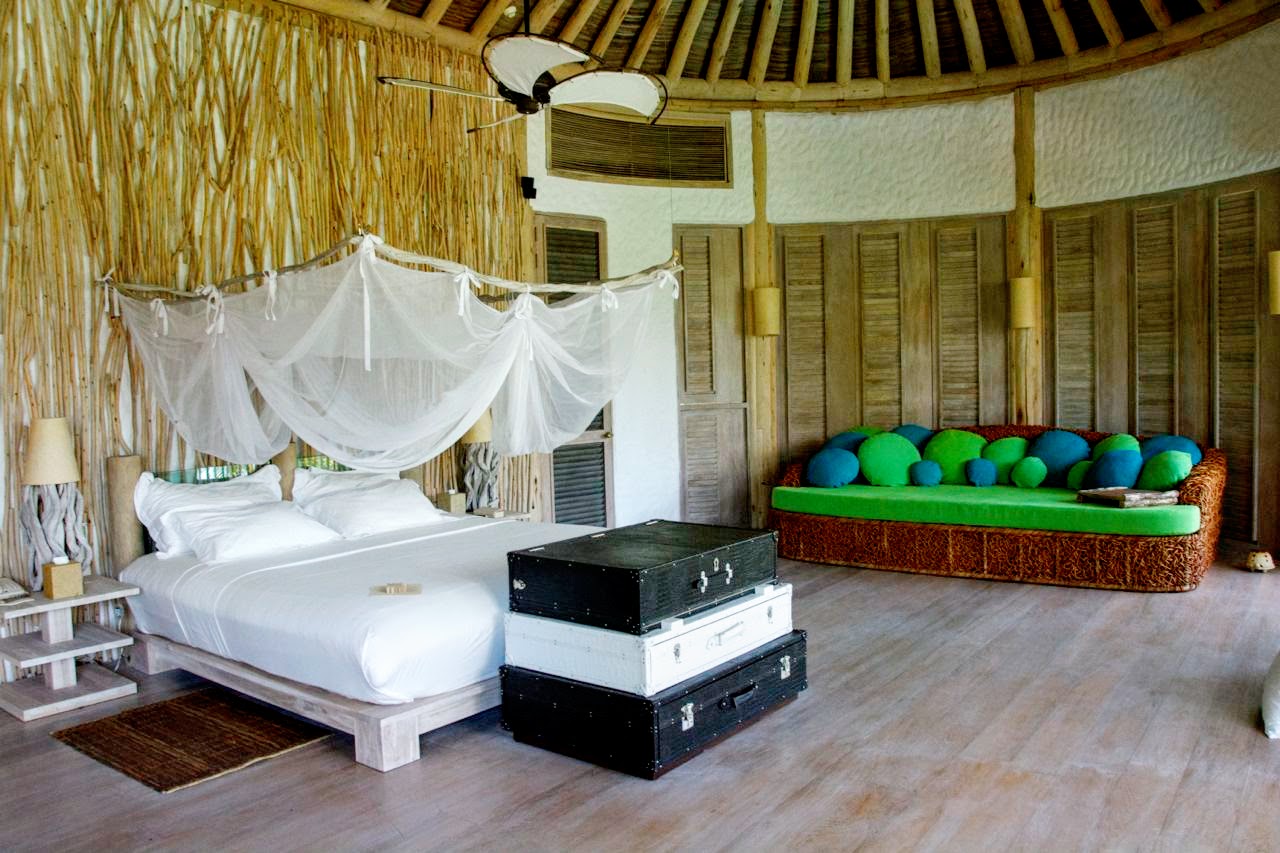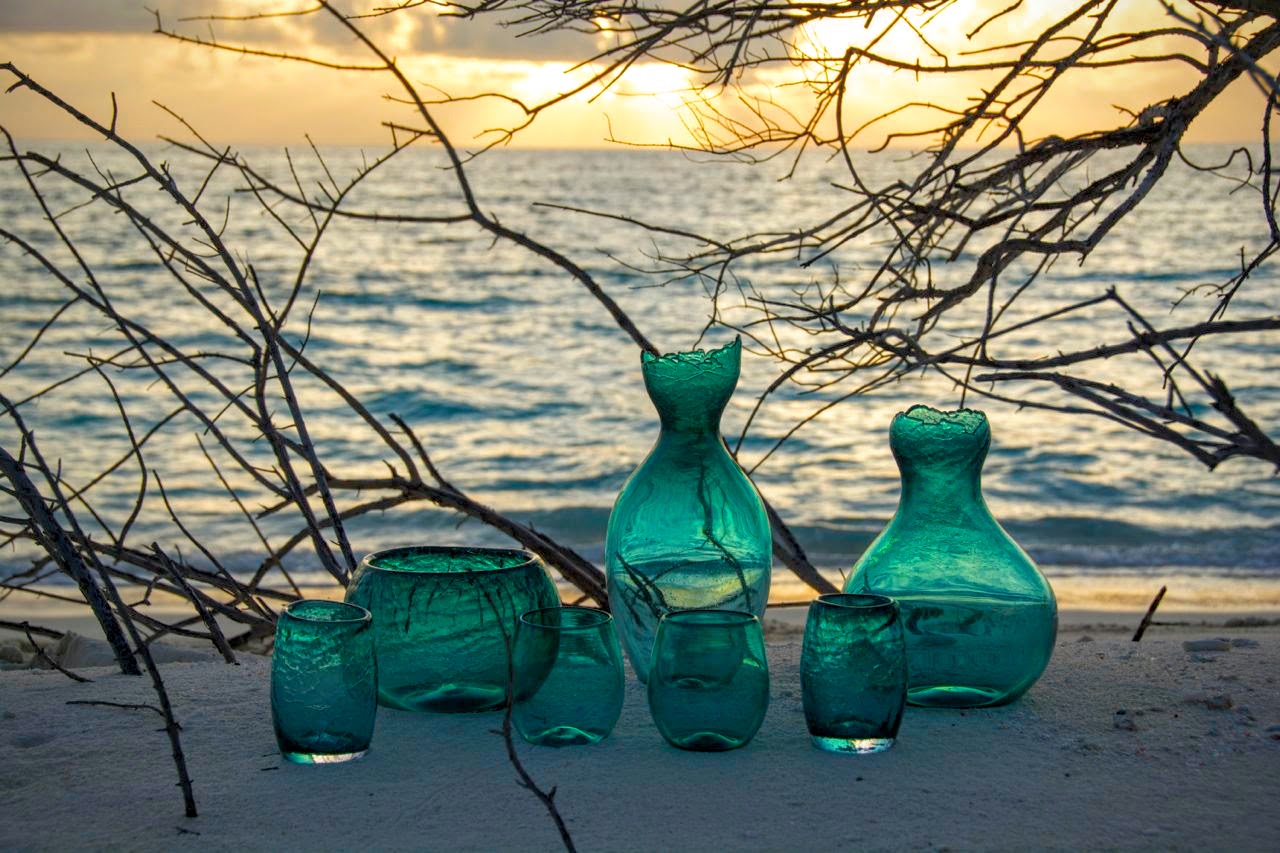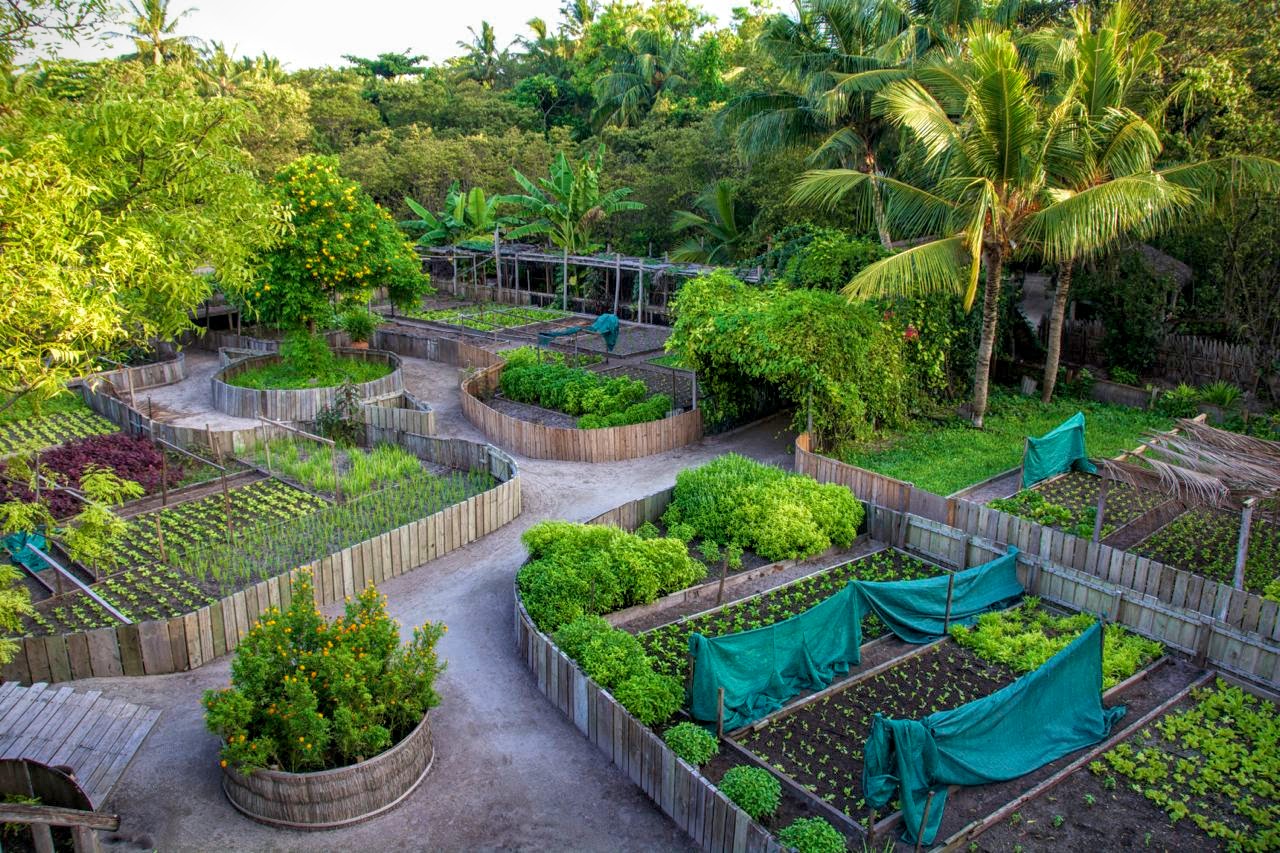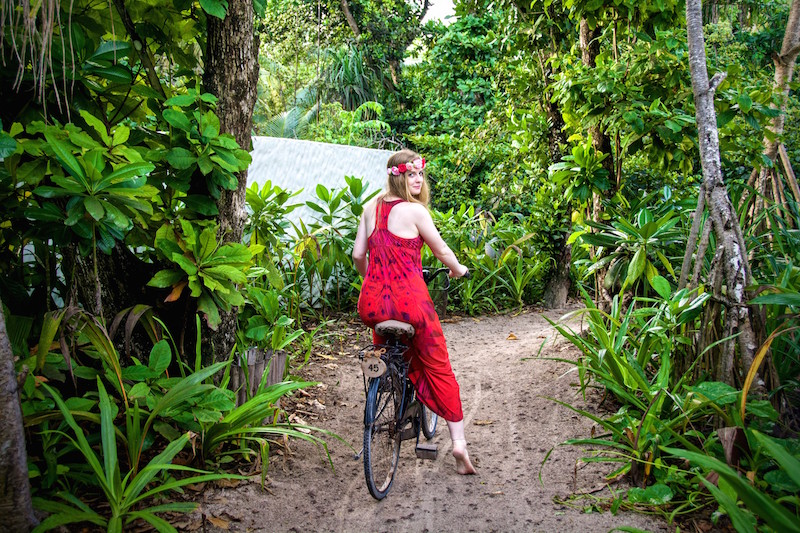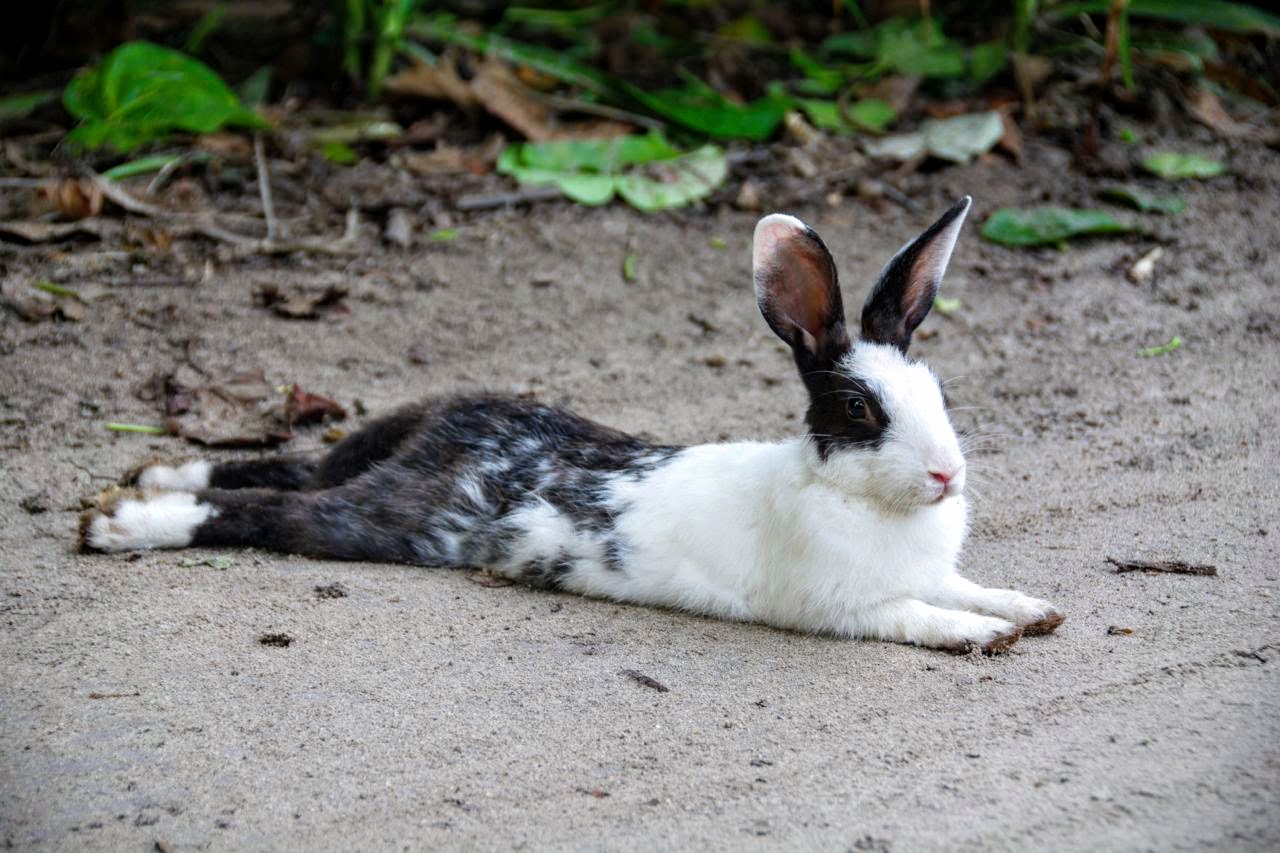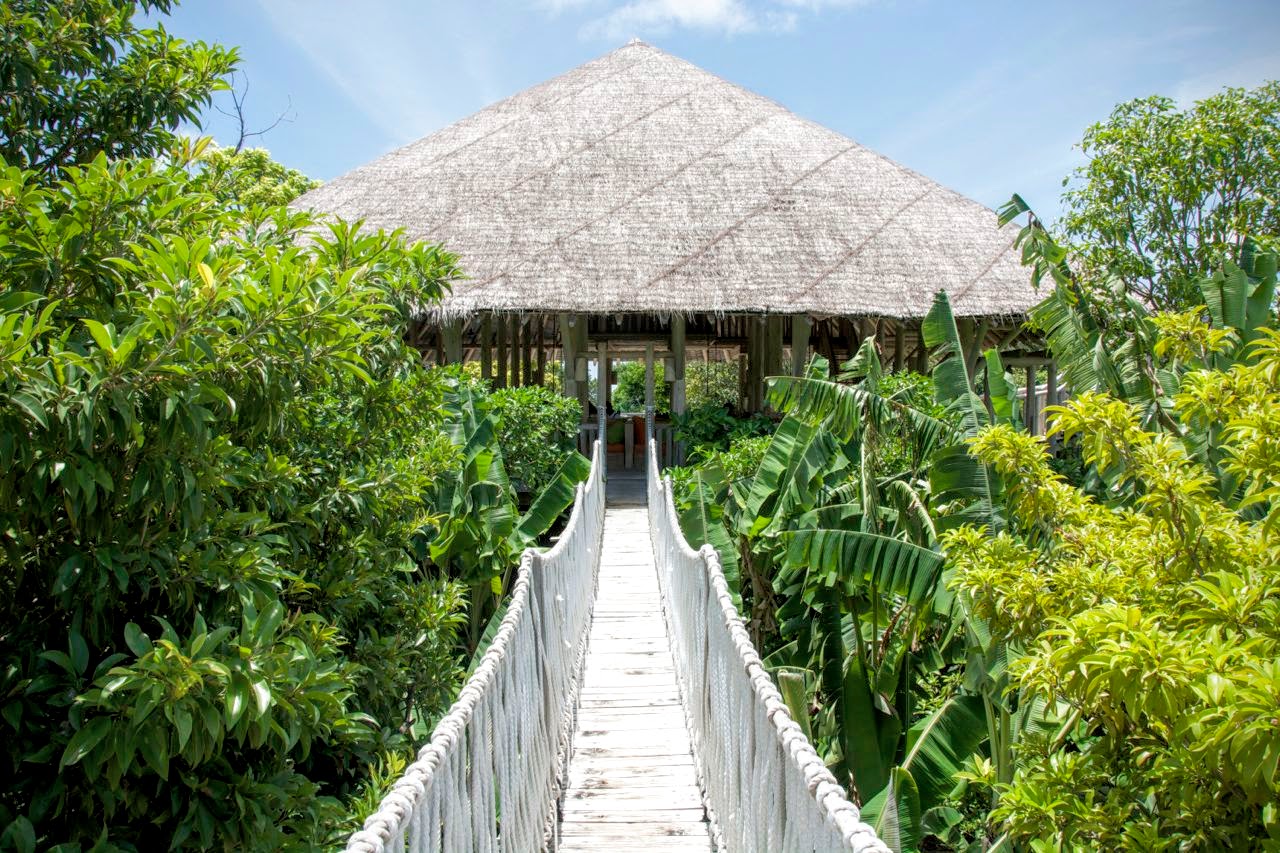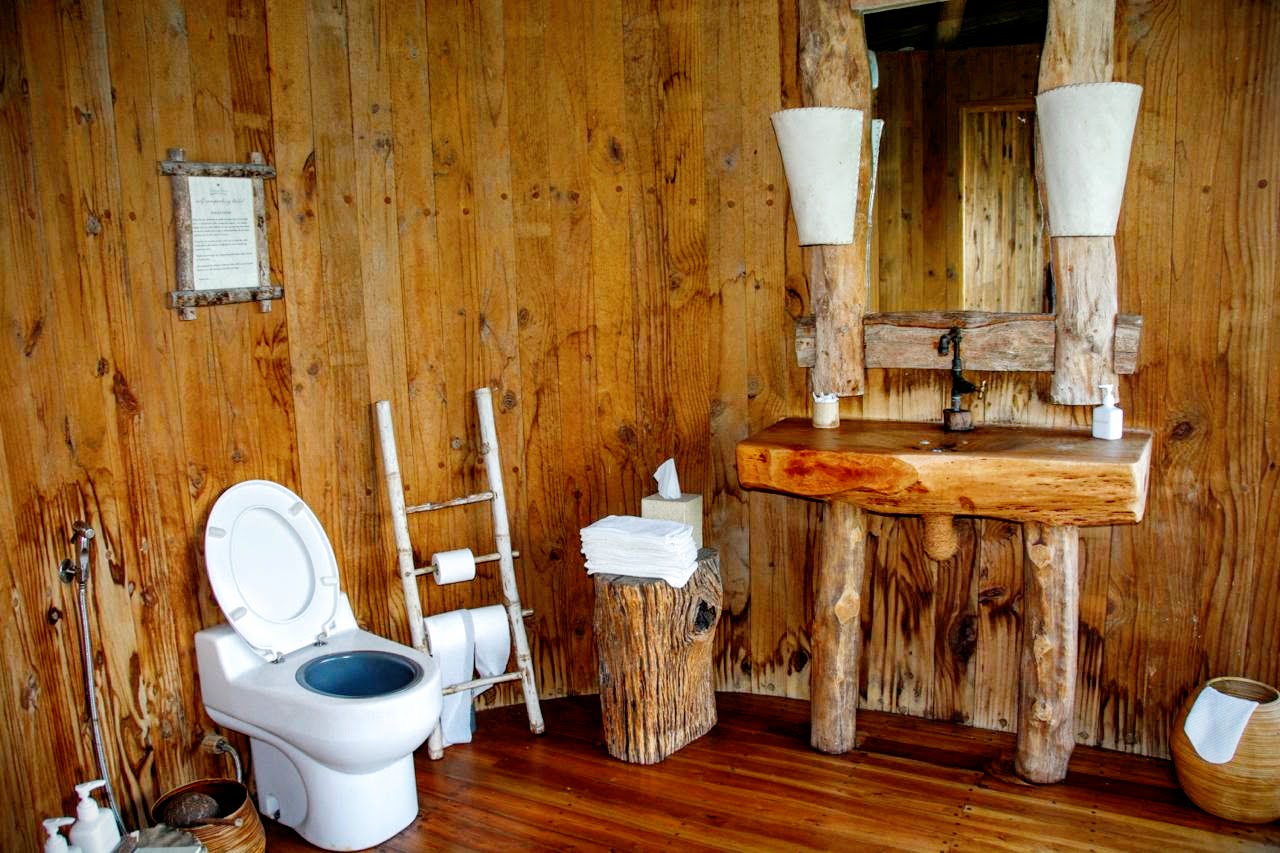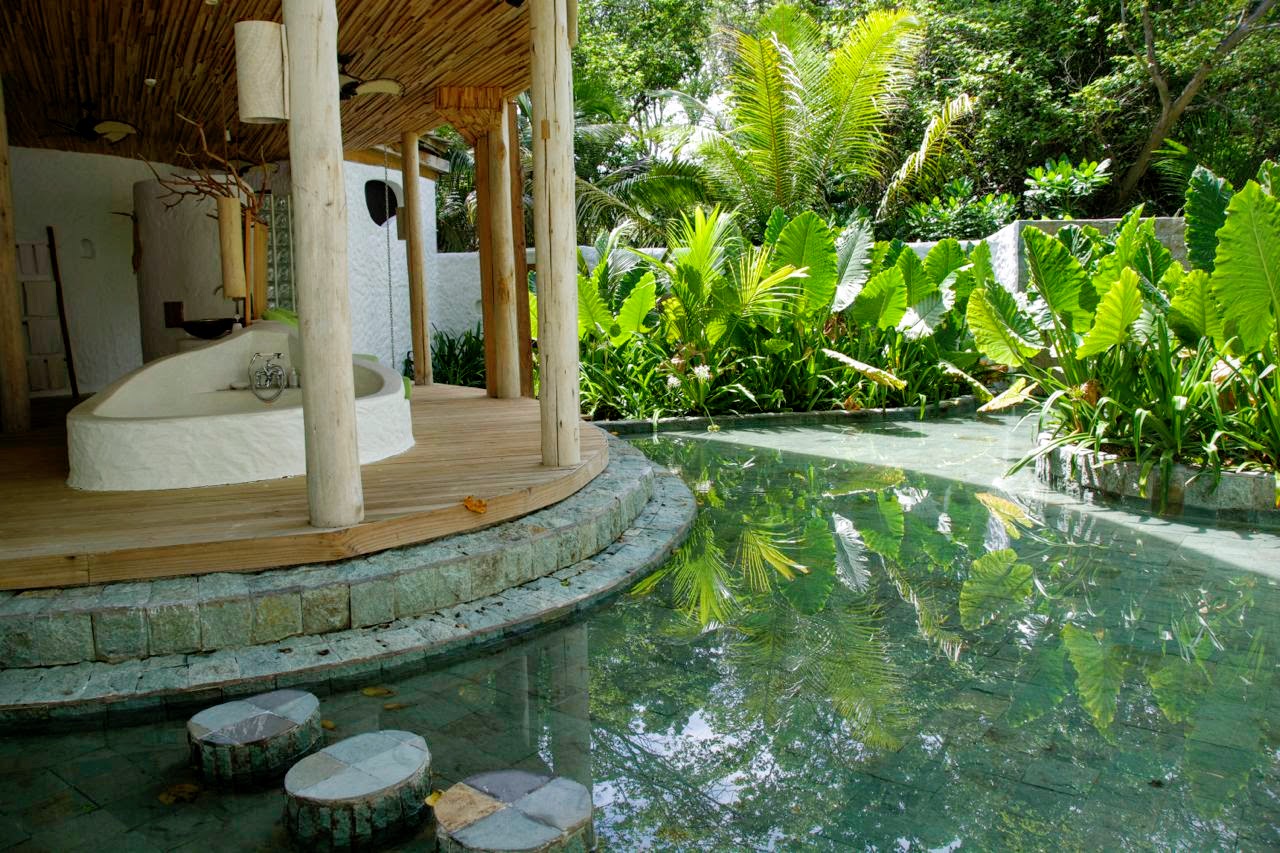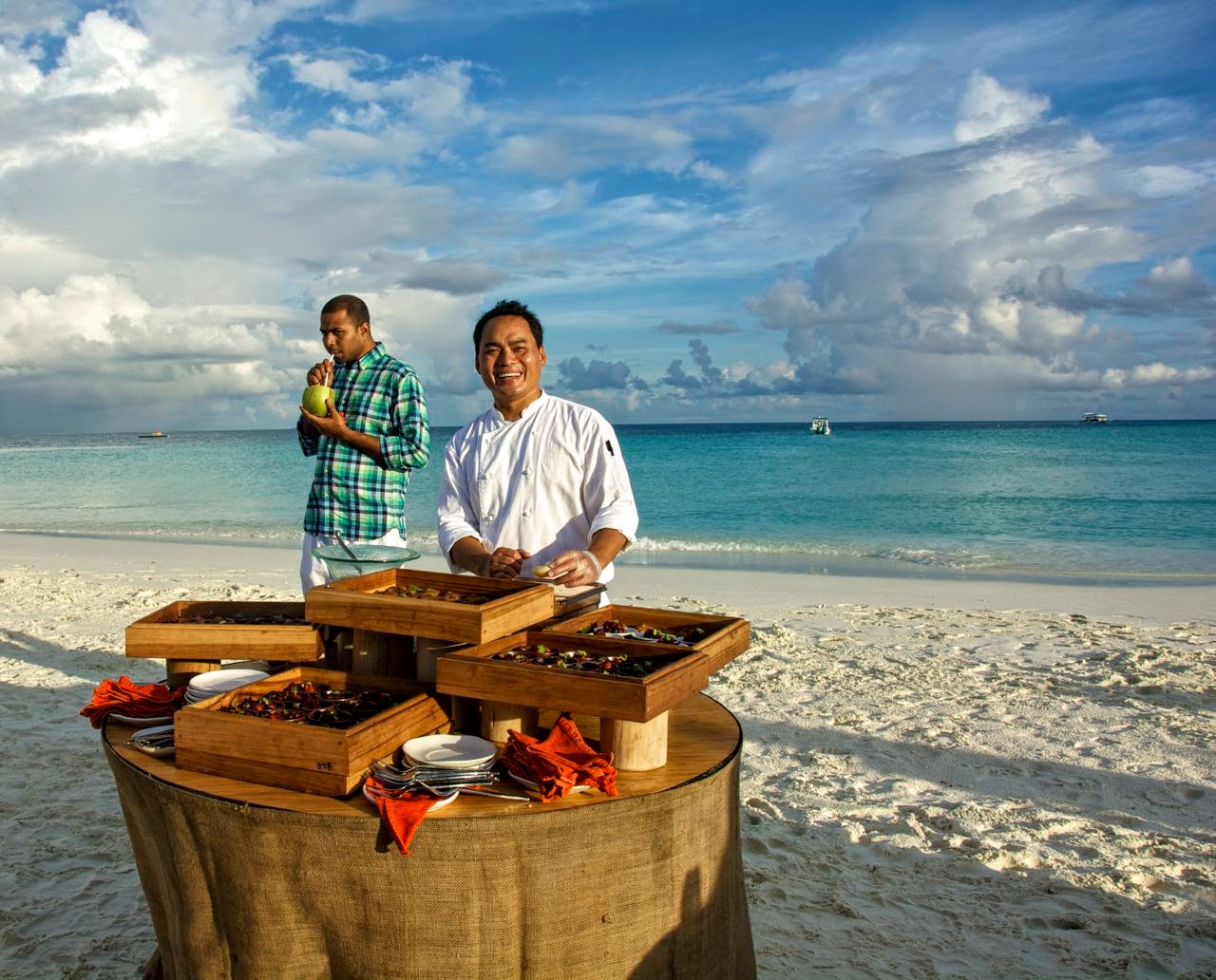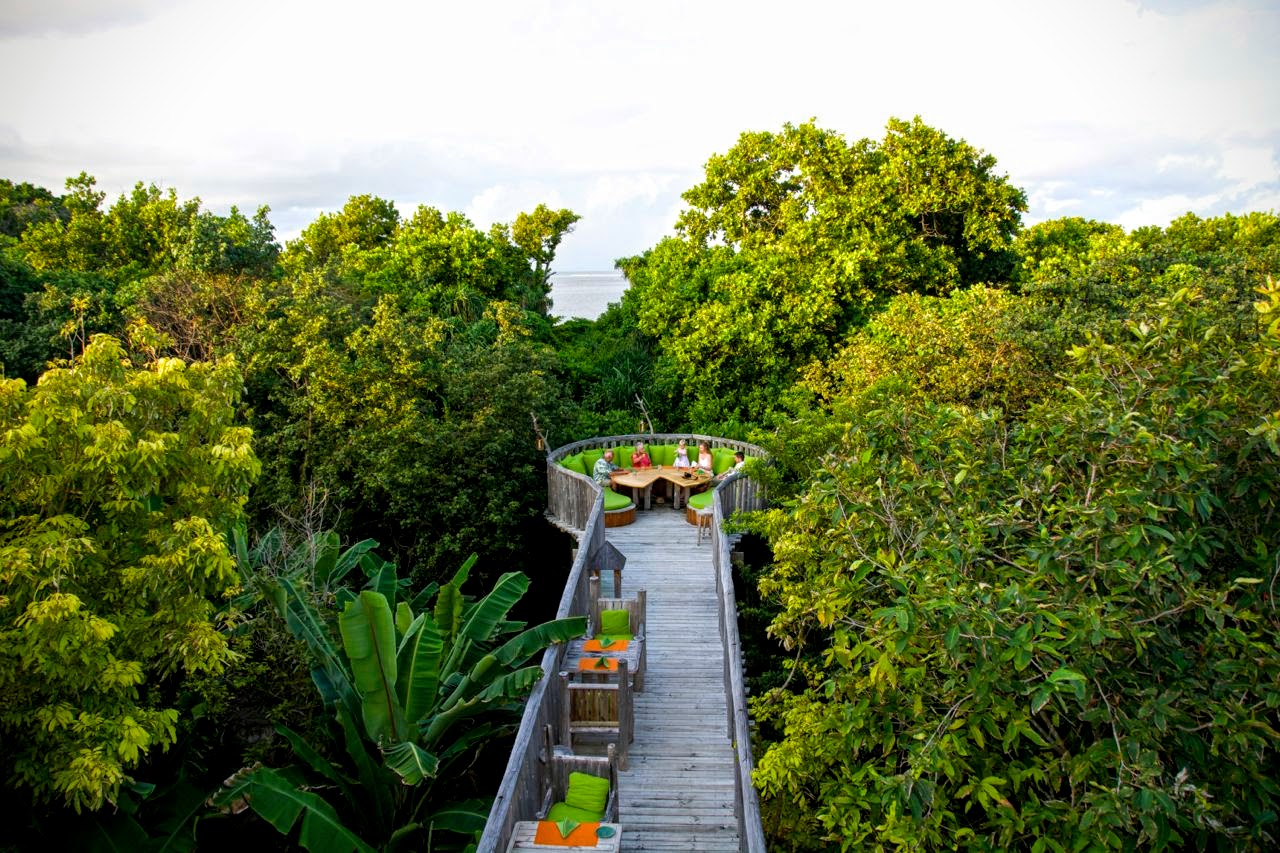
Soneva Fushi pairs Robinson Crusoe fantasy with Intelligent Luxury
“May I take your shoes?” asks Xain our personal Mr. Friday. Our sandals disappear into a cotton bag, where they will remain for the duration of our stay. We have arrived by seaplane at Soneva Fushi ‘international airport’, a small pontoon in the UNESCO-listed waters of Baa atoll, and are whisked by speedboat to Kunfunadhoo Island. Stepping ashore barefoot feels like an initiation rite into the Soneva Fushi SLOW LIFE ethos.
I have come with my 17-year-old niece, who loves bling bling, make-up, fancy clothes and, like most teenagers, needs her daily dose of wifi. I am curious how she will take to the ‘no news, no shoes’ policy of Soneva Fushi where wifi access is restricted in public areas, phones are discouraged, and understatement is the order of the day. There is an unspoken ‘dress down not up’ code; think classy bohemian – simple linens, ethnic robes, yoga attire, cotton bags stamped with your local bookshop’s logo instead of expensive designer handbags.
Opened 20 years ago by the innovative husband and wife team, Eton-educated Sonu Shivdasani and Eva Malmstrom, a former Swedish high fashion model, the resort is a flagship of their unique brand. The award-winning resort has pioneered many concepts that now define the Maldivian tourism industry, including barefoot luxury on a castaway island. Today this concept has matured into what they call ‘intelligent luxury’. “Our belief in luxury is about combining the traditional opposites of sustainability and wellness with luxury,” says Sonu. “We believe that these things actually complement each other.”
Sustainable luxury begins by sourcing responsibly grown materials to achieve the resort’s signature Scandinavian-design-meets-the-jungle aesthetic of blond woods, driftwood features and bright colours that bring the natural environment inside. “We avoid teak and favour bamboo and eucalyptus: both fast growing trees that we grow in plantations and that are just as beautiful as rarer materials,” says Sonu.
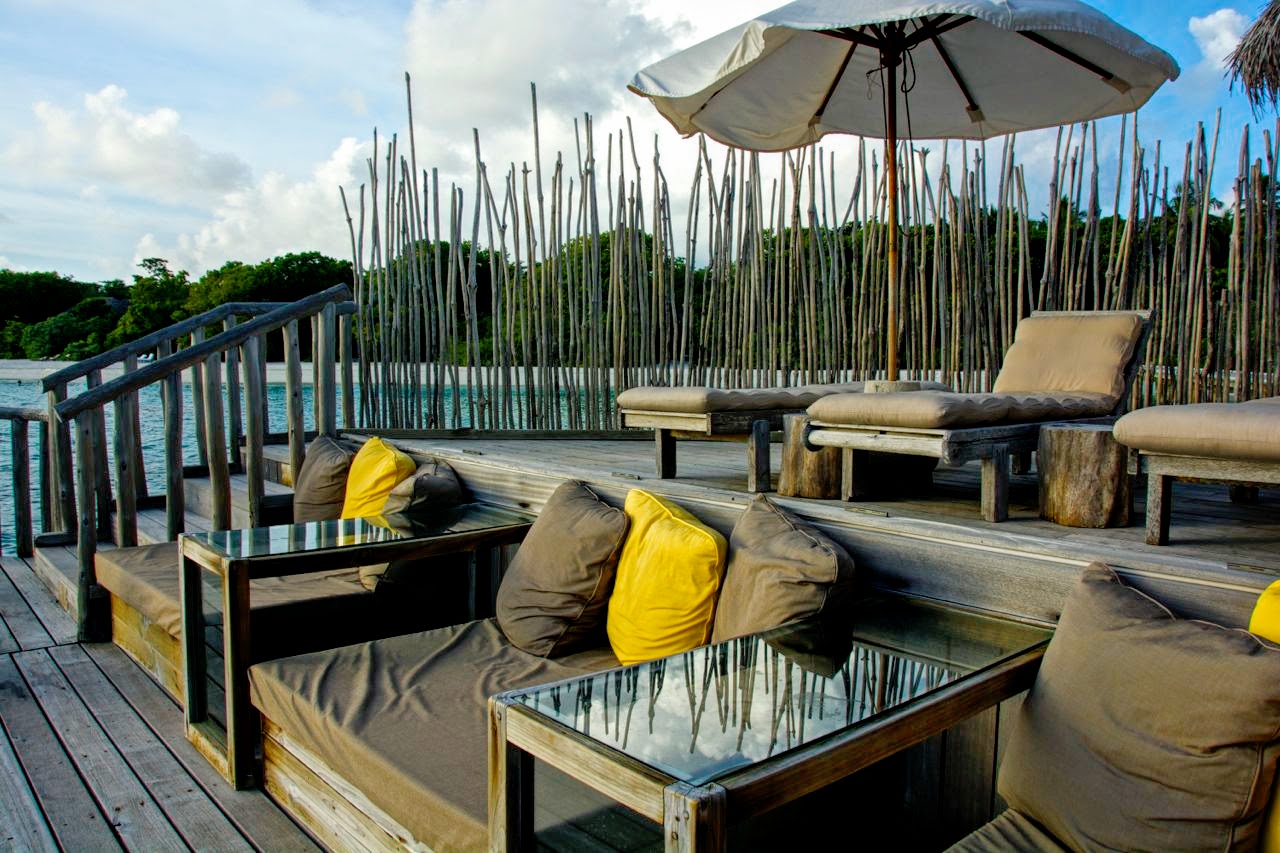
Driftwood straight off the beach and recycled woods artfully assembled into beautiful functional items, give the resort its Robinson Crusoe look. The mosquito net over my bed is held up by a driftwood frame and promises dreams of being stranded on a desert island; slabs of driftwood combine into a giant mirror frame in our enormous, jungle-clad outdoor bathroom; the toilet paper is dispensed from a miniature bamboo ladder; and the chairs and tables in the main lunch and breakfast buffet area look like they could indeed have been made by Daniel Dafoe’s fictional Mr. Friday.
“Sustainability is in the DNA of Soneva,” says Kevin Christison, curator of Soneva Art and Glass. Soneva’s Glass Studio is the latest edition of Eva and Sonu’s innovations that push the limits of sustainability on a tropical island. “Traditional ways of dealing with glass waste, has a huge carbon footprint,” says Kevin, who is a long-term collaborator working with chief designer Eva. “So we thought, let’s do it at the source, let’s up-cycle, not recycle.” A prototype range of plates, bowls, and glassware is being designed in collaboration with the chef of Fresh in the Garden, to match function with form. It is due to be rolled out officially for Soneva’s big 20th birthday party on November 21st of this year.
Soneva Fushi also employs a full-time Waste to Wealth manager, Gordon Jackson, who takes us on a tour of the Eco Centro recycling station. All of the resort’s food waste is recycled instead of dumped in the deep sea, as is common practice in the Maldives. Some of the compost, which sits heaped into gigantic mounds, is sold to other resorts for landscaping. There are plans to build a regional composting centre, he says, which would allow all of the resorts in the atoll to produce their own compost instead of buying it from Sri Lanka.
Getting rid of plastic bottles seven years ago, in favour of water bottled on-site (sparkling and still), now practiced by an increasing number of resorts throughout the Maldives, was a no brainer says, Gordon. He points to a patch of soil baking in the hot midday sun, where the resort’s second batch of solar panels – the first and biggest of its kind in the Maldives at the time was installed in 2009 – is about to be installed, to further reduce its reliance on diesel energy consumption. Another no brainer, it would seem.
Gordon leaves us at the Organic Vegetable Garden, one of two gardens where much of the resort’s fresh produce is grown. Lunch is a delicious sampling prepared by a Sri Lankan chef in a pop-up restaurant, right there in the garden. Our favourites are the eggplant and pumpkin curries and the simple fresh green garden salad, which actually tastes as a homegrown salad should.
On our way back to our villa we get lost on the 1.4 km long island, which is large by Maldivian standards, and come out at the construction site of the new Children’s Den. More like a resort within a resort exclusively for kids, this 5-star adventure wonderland enveloped in the jungle makes me want to be a kid again.
And that seems to be the point of this resort. Roaming barefoot through tangled jungle on old-fashioned black bikes, that look like they too have been recycled, takes me back to the carefree days of my childhood.
My niece also becomes an instant Soneva devotee; the room full of homemade chocolates and the selection of 30 daily changing icecreams – available all day until late on a help yourself basis – will seduce any teenager. I watch her become a little child again, kneeling down to pet a black and white bunny rabbit – there are a dozen or so roaming wild near the vegetable gardens.
Crossing the suspended wooden bridge swaying above the treetops to reach Fresh in the Garden, an exquisite treehouse-like restaurant, we shriek like excited kids. The composting toilet in the treetops, complete with the signature driftwood aesthetic and 180-degree views of the surrounding jungle, should not be missed.
Dinner under the stars above the treetops is followed by stargazing at the observatory, which is reached via another wooden bridge above the treetops. Buzz Aldrin, the second man on the moon, has looked through this same telescope on his visit, Shameem the in-house astronomer proudly points out. Like many long-term employees here, this local Maldivian speaks with more than a hint of Sonu’s Eton accent.

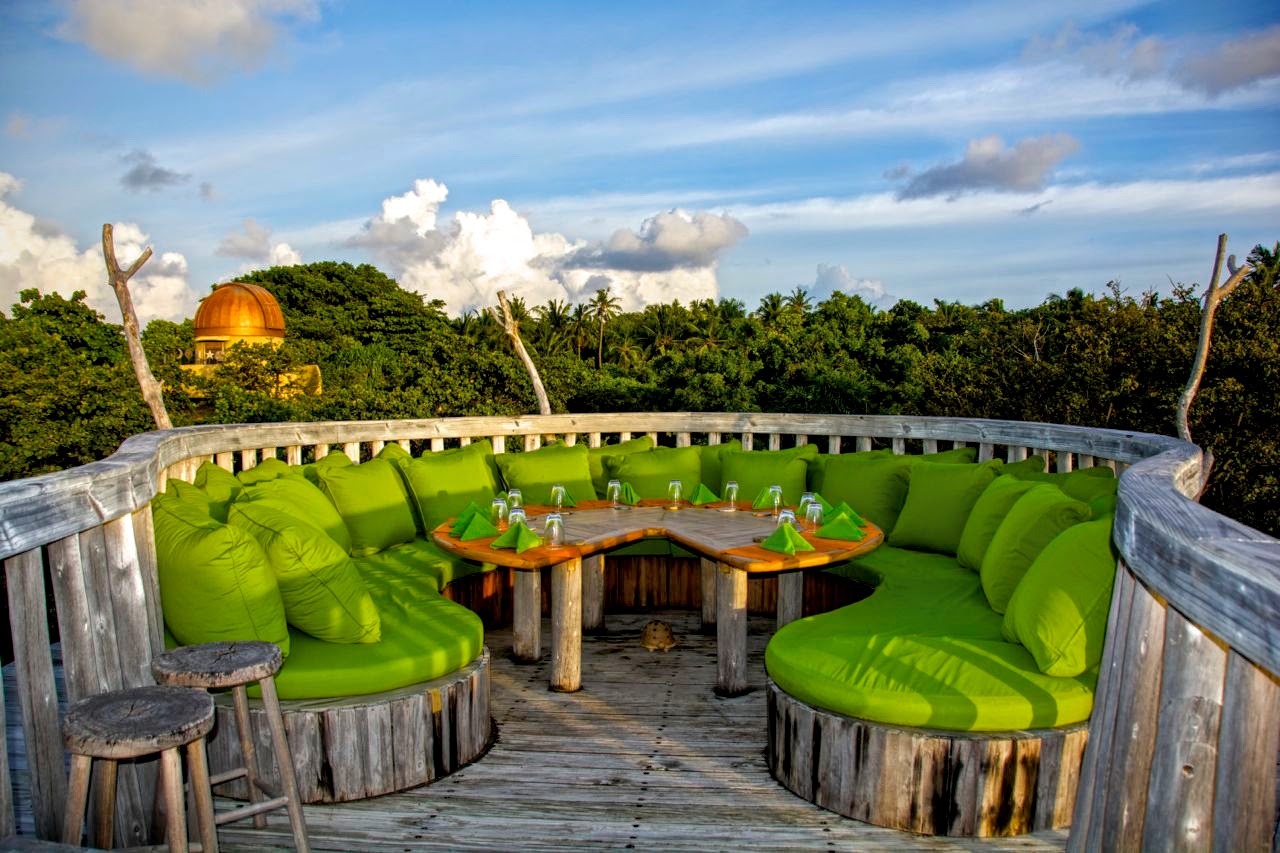
We cycle back to our villa through the jungle. Earlier in the day we’d found the wifi button and flat screen– discreetly hidden in a mock travelling trunk – but we decide to indulge our Robinson Crusoe fantasy and switch off everything, including the air conditioner. Opening up all the floor-to-ceiling glass doors and windows feel like our massive coconut-wood beds sit right inside the thick jungle. We fall asleep to the sounds of the ocean, cooled by the natural breeze.
At Soneva Fushi the Robinson Crusoe fantasy is paired with an extraordinary display of high-quality foods and wines. The breakfast the next morning is the best I’ve ever seen or tasted (because as hard as I try, I can’t taste all of it). The charcuterie and cheese room takes me from castaway island to Italy and France; the extensive menu of fresh juices reminds me to combine luxury with health, and the extensive coffee menu includes Eva’s Special Cappuccino. A short black with a large hood of frothed milk, it is the cup of coffee I have tried and failed to order countless times anywhere I go. This resort truly speaks my language.
We never get to meet the couple behind the Soneva ethos, who call this island home. Eva is in residence, but very busy with the Children’s Den, and Sonu left the week before, but he promptly answers my questions via email.
“Luxury is what is rare to us,” he says. “Our theory is that a new luxury is emerging based on what is now missing in everyday life: nature, sustainability, and good health.” We couldn’t agree more.
—
All photos are by Kerstin Pilz
